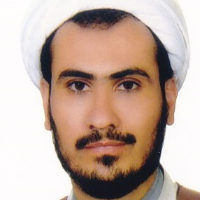Evaluating the Viewpoints of Sayyid Aḥmad Khān Hindī in Defining the Boundaries of Quran and Sunna Territory
Author(s):
Article Type:
Research/Original Article (دارای رتبه معتبر)
Abstract:
Nowadays, the discussion of religion territory is one of the important and challenging debates in the Islamic world. Sayyid Aḥmad Khān Hindī has been the first thinker who followed his contemporary orientalists in talking about the boundaries of the Quran and sunna territory. The viewpoints that Sayyid Aḥmad Khān has provided in defining the boundaries of the Quran and sunna territory can be examined and evaluated in four directions, namely, sunna is the spirit of the divine message and its interpretation, and is similar to the Bible in this regard, sunna is mainly measured by intellect, and the otherworldly matters comprise the only arena of sunna revelation. However, there are some important criticisms against his viewpoints. First, he likens the sunna revelation to the Bible revelation, while there exist important differences between the two. Second, his consideration of the details of the sunna revelation as stemming from exegesis arises from Sayyid Aḥmad Khān’s viewpoint on the nature of revelation and his attribution of a human source to it. Third, adopting a strategic viewpoint to the qur’ānic verses leads us to the point that the human is created by God, and his will existentially and legally depends on His will; therefore, despite having the grace of intellect, he faces limitations in all paths of knowledge. Fourth, his viewpoint on revelation is similar to the Christian thinkers’ stance in this regard, and this viewpoint does not agree with the infallibility of the prophets.
Keywords:
Quran , sunna , Intellect , Revelation , Aḥmad Khān
Language:
Persian
Published:
Seraje Monir, Volume:12 Issue: 42, 2023
Pages:
1 to 24
https://magiran.com/p2532805
سامانه نویسندگان
مقالات دیگری از این نویسنده (گان)
-
Evaluating Roberto Tuttoli's views on Prophet Shu'ayb (AS) in the Quran
*, Hasan Rezaii, Habibeh Mansouri
Journal of Religious Research And Efficiency, -
A Critical Analysis of Alexander D. Knysh’s View on the Exegetical Methods of Ghazali and Ibn Arabi
Rasol Mazraei, Hasan Rezaee Haftador *,
The Qur’an from Orientalists Point of View Qur’an and Orientalists, -
Anthropological Principles of Ethics in Shaykh Mufīd's Thought
Ali Salehi, Mohammad Qasemi, *
Journal of New Intellectual Research, -
The Position of “Construe” in the Artistic Recitation of the Holy Quran
*, Isa Alizadehmenamen, Mohammad Taghi Mirzajani
Journal of Quranic Studies,



